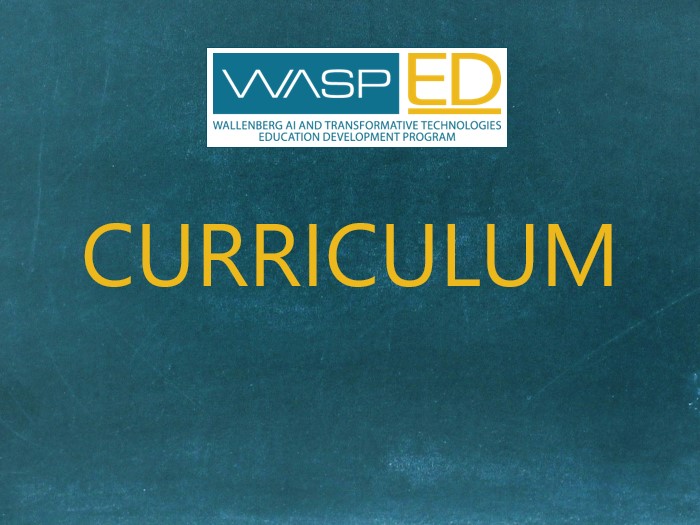A first paper on the WASP-ED curriculum has been published by Helena Lindgren and Fredrik Heintz. The WASP-ED curriculum aims to provide broad view of the subject iself, rather than a particular education program, and not limit the curriculum to the STEM subjects. Instead, the curriculum provides a holistic, human-centered AI perspective.
The paper was presented at the INTED 2023 and is available in the proceedings of the conference (see reference below).
Abstract
Efforts in lifelong learning and competence development in Artificial Intelligence (AI) have been on the rise for several years. These initiatives have mostly been applied to Science, Technology, Engineering and Mathematics (STEM) disciplines. Even though there has been significant development in Digital Humanities to incorporate AI methods and tools in higher education, the potential for such competences in Arts, Humanities and Social Sciences is far from being realised. Furthermore, there is an increasing awareness that the STEM disciplines need to include competences relating to AI in humanity and society. This is especially important considering the widening and deepening of the impact of AI on society at large and individuals. The aim of the presented work is to provide a broad and inclusive AI Curriculum that covers the breadth of the topic as it is seen today, which is significantly different from only a decade ago. It is important to note that with the curriculum we mean an overview of the subject itself, rather than a particular education program. The curriculum is intended to be used as a foundation for educational activities in AI to for example harmonize terminology, compare different programs, and identify educational gaps to be filled.
An important aspect of the curriculum is the ethical, legal, and societal aspects of AI and to not limit the curriculum to the STEM subjects, instead extending to a holistic, human-centred AI perspective.
Reference
H. Lindgren, F. Heintz (2023) THE WASP-ED AI CURRICULUM: A HOLISTIC CURRICULUM FOR ARTIFICIAL INTELLIGENCE, INTED2023 Proceedings, pp. 6496-6502. doi: 10.21125/inted.2023.1727

